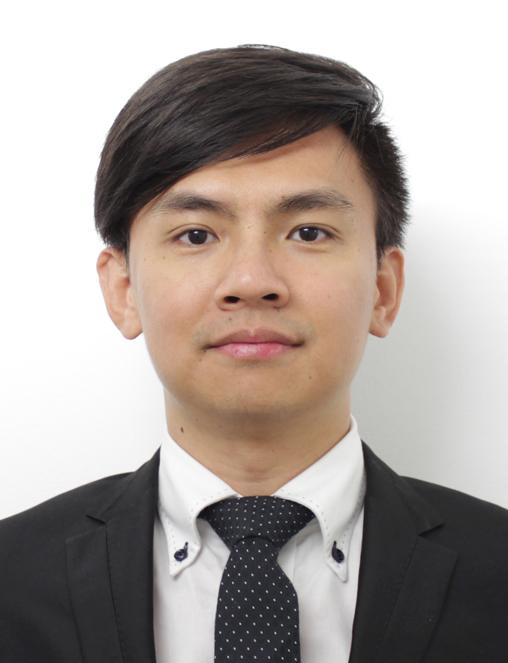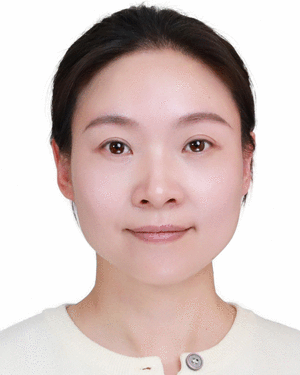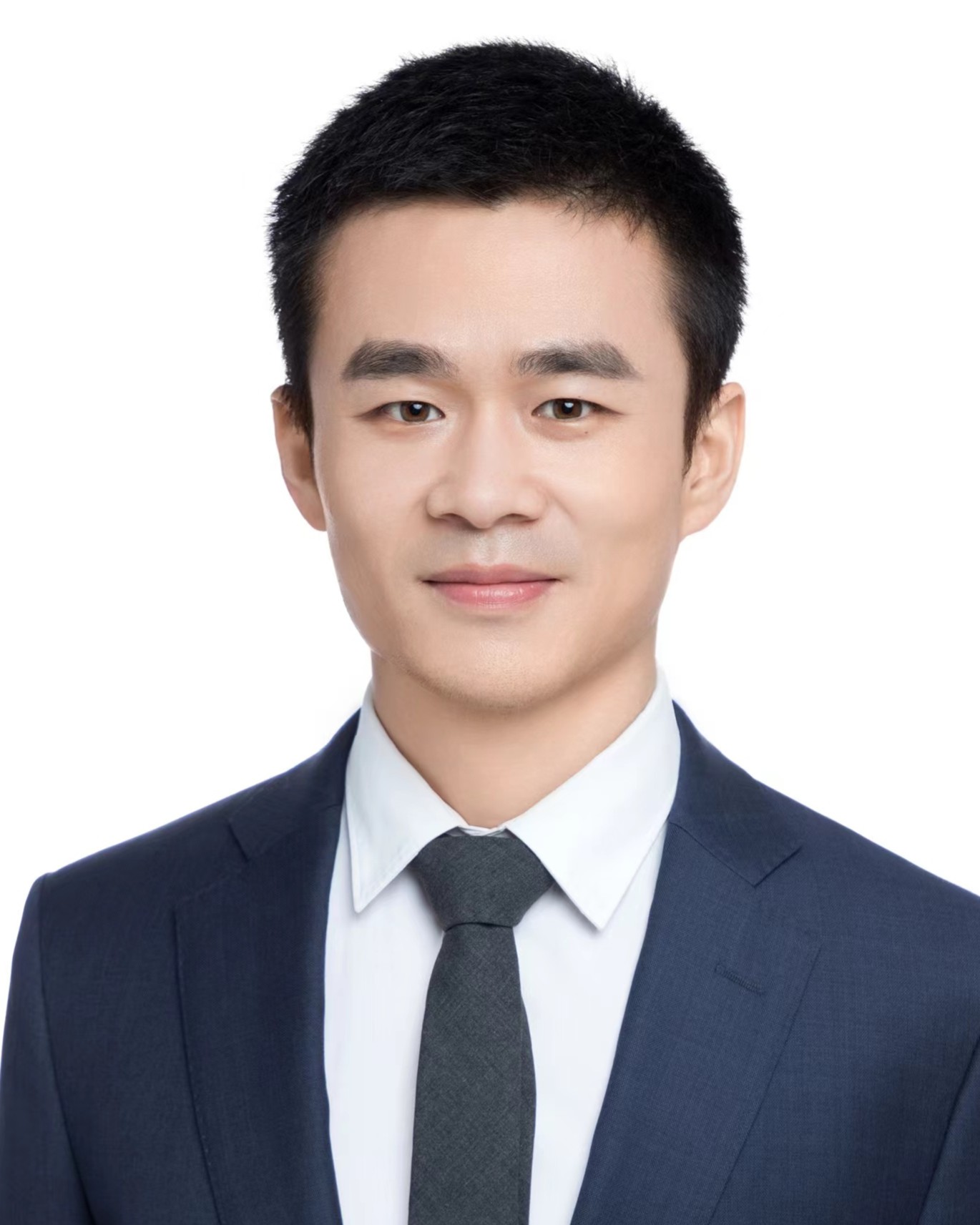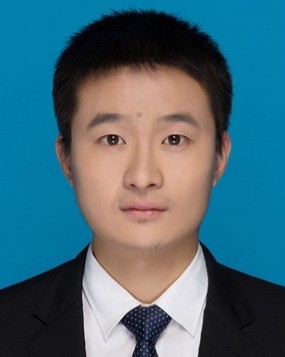Invited Speakers-ICACR 2025
Prof. Luefeng Chen
China University of Geosciences, Wuhan, China
Biography:Luefeng Chen received the Ph.D. degree from Tokyo Institute of Technology, Tokyo, Japan, in 2015. He is currently Deputy Dean and Professor of the School of Automation, China University of Geosciences, Wuhan, China. His research interests include multimodal perception and understanding, intelligent systems and control, human-robot interaction.
Dr. Chen is Senior Member of IEEE, and included in the World’s Top 2% Scientists 2025. He has published 68 SCI journal papers and 41 of them are IEEE transactions and IFAC journals, where 3 of them are ESI highly cited/hot paper, and he has published 2 books in Springer. He serves Associated Editor of SCI journals including Information Sciences and Journal of Systems Science and Complexity. He previously served as Program Chair of the 26th IEEE International Conference on Industrial Technology (IEEE ICIT2025) and Publicity Chair of the 6th IEEE International Conference on Industrial Cyber-Physical Systems (IEEE ICPS2023). He has received academic awards such as Best Paper Award and Distinguish Editor Award of the IFSA journal JACIII.
Speech Title: Multimodal Perception and Understanding in Embodied AI Systems
Abstract: Aiming at the research frontiers and national needs of multimodal intelligent systems and Embodied AI systems, we focuses on solving the basic theory and application of multimodal perception and understanding. At first, an innovative method for analyzing coupled multimodal emotional features based on broad-deep networks is proposed to overcome the technical bottleneck of integrating different modal features. And then, we construct an intention understanding model based on fuzzy deep neural networks, revealing the quantitative relationship between multimodal emotions and personal intentions. In addition, an information-driven based natural interaction method is proposed, which solves the problem of feedback on intentions. The proposals are applied in the Embodied AI systems, including emotional robot systems, intelligent recognition and control system for geological/coal mine drilling process, and intelligent prediction and control system of plate shape for iron and steel metallurgy process, where perception and understanding of multimodal information are realized.
Prof. Yangmin Xie
Shanghai University, China
Biography:Yangmin Xie received the B.S. and M.S. degrees in mechanical engineering from the School of Mechanical Engineering & Automation, Beihang University, Beijing, China, in 2005 and 2008 respectively. She received the Ph.D. degree in mechanical engineering from the University of Illinois at Urbana-Champaign, Urbana, IL, USA, in 2013. She was a Postdoctoral Associate with the University of Illinois at Urbana-Champaign. She is currently a Full Professor with the School of Mechatronics Engineering and Automation, Shanghai University, Shanghai, China. She is also the Deputy Director of the Shanghai Key Laboratory of Intelligent Manufacturing and Robotics, and the Deputy Director of the Shanghai Robotics Institute. Her research interests include intelligent sensing and control of mobile robots, environmental reconstruction, and autonavigation of unmanned systems. Dr. Xie was elected in the Youth Talent Promotion Project by the China Association for Science and Technology, and was the recipient of the Rising Star Program by the Shanghai Science and Technology Committee.
Speech Title: 3D Navigation via Multi-Sensor Fusion: Adaptive Framework and Full-View Perception
Abstract: The development of embodied intelligence highlights mobility and manipulation as its two core dimensions, with navigation serving as the foundation of mobility intelligence. Traditional 2D indoor navigation systems—limited in spatial modeling capability and environmental adaptability—are no longer sufficient for robots operating in complex, high-dynamic 3D environments. To address this challenge, we developed a multi-sensor fusion–based 3D navigation framework that integrates heterogeneous perception sources through a hot-swappable architecture and adaptive fusion strategy.
The proposed system tackles three major bottlenecks in current navigation technologies: poor environmental adaptability, weak terrain compliance, and limited field of view. We introduce a unified framework combining multi-layer topological path planning, terrain-adaptive control, and spherical-pixel–based panoramic perception to achieve distortion-free, full-angle sensing and robust navigation performance across unstructured terrains.
Experimental results in diverse logistics and autonomous mobile platforms demonstrate significant improvements in dynamic scene adaptation and path efficiency. The framework effectively reduces hardware coupling, and enables seamless among heterogeneous platforms. It contributes to establishing a generalized 3D navigation paradigm capable of supporting next-generation intelligent robotics and embodied AI applications.
Prof. Yu Zhao
Northwestern Polytechnical University, China
Biography:Prof. Yu Zhao is a tenured professor and doctoral supervisor at Northwestern Polytechnical University, recognized as a National Outstanding Youth Fund recipient and a high-level talent of Shaanxi Province. Prof. Zhao has long been committed to research in cluster intelligence collaborative decision-making, as well as planning and control of multi-agent systems, achieving remarkable academic accomplishments. He has published over 100 academic papers, with 18 featured in top-tier control journals IEEE Transactions on Automatic Control and Automatic (including 8 full papers), a testament to the depth and significance of his work. He has led more than 10 key scientific research projects and earned numerous prestigious honors, such as the Second Prize of National Defense Science and Technology Progress, the First Prize of Shaanxi Provincial Graduate Education Achievement Award, the National Best Paper Award on Complex Networks, and twice the Shaanxi Provincial Excellent Academic Paper Award in Natural Sciences. Additionally, he has been consistently ranked among the world’s top scientists, underscoring his prominent standing in the global academic community.
Speech Title: Dynamic Average Consensus over Asymmetric Networks: A New Integral Surplus-Based Approach
Abstract: Motivated by the engineering task of cooperative encirclement for dynamic non-cooperative targets, this study identifies the key scientific problem of dynamic average consensus over asymmetric networks. To this end, a new integral surplus-based framework is established. By analyzing the eigenvalues and eigenvectors of the networked matrix, this framework resolves the challenge of center estimation in multi-target cooperative encirclement over directed networks. As a further extension, an “integral surplus + state decomposition” privacy-preserving communication mechanism is designed to tackle communication privacy and security concerns. Subsequently, considering spatiotemporal coordination accuracy, an “integral surplus + prescribed-time” cooperative planning and formation-based tracking control scheme is developed. Finally, the proposed approach is applied to the high-precision, timed and positioned space flying net cooperative encirclement mission for dynamic non-cooperative targets.
Prof. Ze Tang
Jiangnan University, China
Biography:Ze Tang received the Ph.D. degree in Electrical Engineering from Yeungnam University, Republic of Korea, in 2017. He joined Jiangnan University, China in 2017 as an Associate Professor, where he is currently a full Professor and Doctoral Supervisor. In 2016, he was a Visiting Fellow with the School of Computing, Engineering and Mathematics, Western Sydney University, Penrith, NSW, Australia. His current research interests include control of complex dynamical systems and control and applications of Internet of things. He was selected as an outstanding young backbone teacher under the Blue and Green Project of Jiangsu Province's universities. He is currently the Deputy Director of Jiangsu Province Engineering Research Center of Industrial Internet Intelligent Optimization Manufacturing. He serves as an Associate Editor for International Journal of Control, Automation and Systems, the Youth Editor of the Journal of System Simulation, Unmanned Autonomous System, Journal of Nanjing University of Science and Technology, and the Young Consulting Expert for the journal Information and Control.
Speech Title: Recent Study on Impulse Control and Synchronization of Coupled Neural Networks
Abstract: Coupled neural networks are a special type of complex networks, and their synchronization control has important applications in fields such as aircraft detection, image processing, and natural language processing. This presentation mainly focuses on the impulsive synchronization and control of several types of coupled neural networks. Firstly, considering parameter mismatches and the mutual influence among different clusters, the problem of quasi-synchronization for coupled neural networks with mixed time-varying delays is investigated, where a pinning impulsive controller is designed. Sufficient conditions for quasi-synchronization are provided. Secondly, taking into account the random uncertainties in communication channels, the quasi-synchronization problem of a class of coupled neural networks with time-varying delays is studied, where a novel distributed event-triggered impulsive control method is proposed. Thirdly, an impulsive time-window scheme is introduced to study the saturated distributed impulsive synchronization problem of a class of directed coupled neural networks with unbounded proportional delays and distributed delays. By utilizing the improved compact convex-hull representation principle, sufficient conditions for local exponential synchronization within the region of attraction are given. Finally, considering the influence of network attacks and the saturation constraints of impulsive control signals, the mean-square synchronization problem of a class of coupled neural networks under deception attacks is investigated by proposing a hybrid event-triggered controller, which effectively solves the actuator saturation problem in discrete-time control signals.
Assoc. Prof. Laihao Yang
Xi'an Jiaotong University, China
Biography:Dr. Laihao Yang received his Ph.D. Degree in the School of Mechanical Engineering from Xi’an Jiaotong University. He was a research fellow of the Structural Dynamics & Acoustic Systems Laboratory (SDASL). He is now in the faculty of the School of Mechanical Engineering at Xi’an Jiaotong University. His research interests include nonlinear vibration modeling and analysis, data-driven structural dynamics, compressive sensing, interpretable AI, and soft robotics. He is the recipient of the first Prize of Science and Technology Award of Shaanxi Higher Education Institutions and the best paper award of CMMNO 2024. He is currently serving on the Junior Editorial Board Member of Soft Science and Robot Learning, the council member of the Professional Committee for Dynamic Testing in the Chinese Society of Vibration Engineering.
Speech Title: Minimally Invasive Robotic Systems for In-situ Maintenance of Aero-Engines
Abstract: In-situ mini-invasive maintenance (inspection and repair) is crucial for the safety insurance and economic purposes of aero-engines. However, the conventional borescope inspection and bore-blending tool both suffer from low slenderness and flexibility, thus impeding the achievement of the goal of highly efficient and intelligent in-situ maintenance for aero-engines. The demand for cross-scale manipulation and multiple functionalities of the in-situ maintenance mission poses new challenges on the way to this goal. This report addresses these issues by proposing a novel in-situ minimally invasive marsupial robotic system for aero-engine maintenance, which contains continuum robots with large length-to-diameter ratios and crawling robots with the capacity for crawling on complex surfaces. Their cooperation enables cross-scale and multifunctional manipulation capacity under unstructured and confined spaces. Specifically, the development of the phylogenetically designed continuum robotic system with high torsion resistance, high load capacity, and excellent compliance will be comprehensively presented from the design principle to motion control. Subsequently, the crawling robot inspired by multistable mechanisms such as origami will showcase how to perform inspection and maintenance tasks in unstructured environments. At last, a brief conclusion and outlook of this report will be given.
Assoc. Prof. Xu Liang
Beijing Jiaotong University, China
Biography:Xu Liang received the B.E. degree in automation from Central South University, Changsha, China, in 2013, and the Ph.D. degree in control theory and control engineering from the Institute of Automation, Chinese Academy of Sciences, Beijing, China, in 2020. He is currently an Associate Professor with the School of Automation and Intelligence, Beijing Jiaotong University. His research interests include rehabilitation robot, orthopedic robot, human–machine interaction, and intelligent systems. Dr. Liang was elected in the Beijing Nova Program, and was the recipient of the first prize of technical invention of the Chinese Association of Automation, the Grand Prize of the National Robot Patent Innovation and Entrepreneurship Competition, the Gold medal of the Geneva International Invention Exhibition, and the outstanding paper award of the "Robot" journal. He serves as an excellent early career editorial board member of the “Biomimetic Intelligence and Robotics” journal, and the deputy secretary general of intelligent wearable technology professional committee of Chinese Institute of Command and Control.






